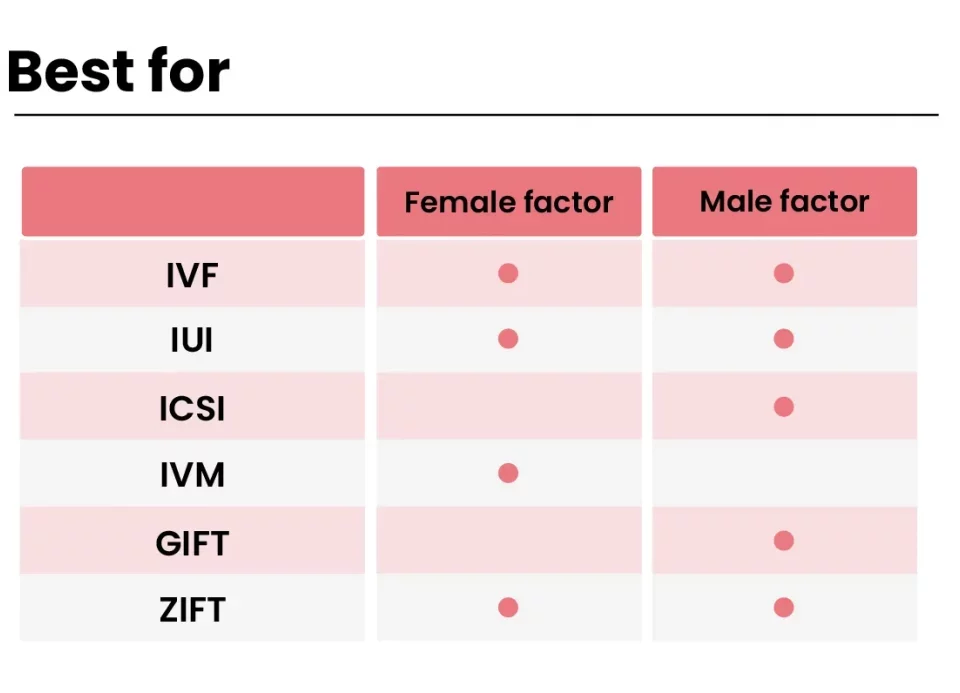
Can You Do Research on IVF Embryos? Exploring the Science, Ethics, and Future
April 7, 2025
Can Unused Embryos from IVF Be Destroyed?
April 7, 2025Why Is IVF Controversial Despite Periods?

Why Is IVF Controversial Despite Periods?
In vitro fertilization (IVF) has been a game-changer for millions of people dreaming of starting a family. Since the first “test-tube baby,” Louise Brown, was born in 1978, this technology has helped bring over 8 million babies into the world. Yet, despite its success, IVF stirs up heated debates. You might wonder: if women have periods every month—naturally shedding eggs—why does fertilizing an egg outside the body cause such a fuss? The answer isn’t simple. It’s tangled up in science, ethics, emotions, and even politics. Let’s dive into the heart of this controversy and explore what makes IVF so polarizing, even when menstruation is a normal part of life.
The Basics: What Is IVF and How Does It Work?
IVF is a process where doctors take an egg from a woman’s ovary, mix it with sperm in a lab, and then place the resulting embryo back into the uterus to grow into a baby. It sounds straightforward, right? But there’s more to it. Women often take hormones to produce extra eggs, and the whole thing involves precise timing, medical tools, and a team of experts. It’s a lifeline for people struggling with infertility—about 1 in 6 couples worldwide, according to the World Health Organization—but it’s also where the controversy begins.
Periods, on the other hand, are nature’s way of resetting the reproductive system each month. An egg is released, and if it’s not fertilized, the body sheds it along with the uterine lining. So why does moving that egg-fertilizing step to a lab spark such strong opinions? Let’s break it down.
The Ethical Puzzle: When Does Life Begin?
One big reason IVF gets people talking is the question of embryos. During IVF, doctors often create multiple embryos to increase the chances of success. Not all of them get used. Some are frozen, some are donated, and others are discarded. This raises a massive ethical debate: when does life start?
For some, an embryo is just a cluster of cells, no different from the egg lost during a period. For others, it’s a potential human life with rights of its own. Religious groups, like the Catholic Church, argue that discarding embryos is morally wrong because they see life beginning at conception—even outside the body. A 2023 Pew Research study found that 54% of Americans believe life begins at conception, which fuels the pushback against IVF.
But here’s a twist: every month, a woman’s body naturally discards an unfertilized egg. So why is losing an egg during a period okay, but discarding an embryo in a lab isn’t? The difference, critics say, is intent. In IVF, humans actively create and then destroy embryos, which feels like “playing God” to some. It’s a debate that’s been simmering since the 1970s and shows no signs of cooling off.
What Do You Think?
Here’s a quick poll to get you thinking:
- Option A: An embryo is just cells until it’s implanted in the uterus.
- Option B: An embryo is a life from the moment it’s created.
What’s your take? Drop your vote in your head—or share it with a friend!
The Science vs. Nature Divide
IVF flips the script on how babies are made. Instead of conception happening naturally inside the body, it’s controlled in a lab. This rubs some people the wrong way. They argue it’s unnatural—like growing a plant in a test tube instead of soil. But is it really that different from other medical breakthroughs, like heart surgery or vaccines?
Science backs IVF’s safety. A 2022 study in the Journal of Human Reproduction showed that IVF babies are just as healthy as those conceived naturally, with only a slight uptick in minor birth defects (about 1% higher). Still, the idea of “designing” a baby in a lab makes people uneasy. Add in advanced options like picking embryos based on gender or genetic traits, and the controversy explodes. It’s not just about making a baby anymore—it’s about choosing what kind of baby you get.
Periods, though? They’re messy, unpredictable, and 100% natural. No one’s controlling them (well, except maybe birth control). So the contrast between the chaos of menstruation and the precision of IVF feeds this tension. One’s a wild act of nature; the other’s a calculated human move.
A Real-Life Example
Take Sarah, a 34-year-old teacher from Ohio. After three years of trying to conceive naturally, she turned to IVF. “I just wanted a baby,” she says. “But my family freaked out when they heard we’d be freezing extra embryos. My aunt said it was against God’s plan.” Sarah’s story shows how personal this debate can get—science gave her hope, but tradition pulled her back.
Money Matters: Who Can Afford IVF?
IVF isn’t cheap. In the U.S., one cycle can cost $12,000 to $20,000, and most people need multiple tries. Insurance rarely covers it—only 19 states have laws requiring some coverage, per the National Conference of State Legislatures (2024 data). Compare that to a period: it’s free (well, except for pads or tampons). This gap creates a fairness issue.
Critics say IVF turns parenthood into a privilege for the wealthy. They point to stories of low-income women selling their eggs to afford rent, raising ethical red flags about exploitation. A 2023 report from the American Society for Reproductive Medicine found that egg donors—often young women in financial need—earn $5,000 to $10,000 per donation. Is that fair compensation or a desperate trade?
On the flip side, supporters argue that IVF levels the playing field for those with medical barriers to pregnancy, like blocked tubes or low sperm count. It’s not about wealth—it’s about giving everyone a shot at a family. Still, the price tag keeps it out of reach for many, making it a lightning rod for debate.
Practical Tip: Saving for IVF
If you’re considering IVF, here’s how to start:
✔️ Set a budget: Aim to save $500 a month—it adds up!
✔️ Check insurance: Even partial coverage can cut costs.
✔️ Look into grants: Groups like Baby Quest offer financial help.
❌ Don’t rush: Avoid loans with crazy interest rates.
The Embryo Leftovers: What Happens Next?
Here’s something you might not think about: what happens to unused embryos? This is a huge sticking point in the IVF controversy. Couples can choose to:
- Freeze them for later.
- Donate them to research.
- Give them to another family.
- Destroy them.
Freezing sounds great—until you realize some embryos sit in storage forever. A 2024 estimate from the U.S. Department of Health and Human Services says there are over 1 million frozen embryos in the U.S. alone. That’s a million potential lives, depending on who you ask. Research donations help scientists study diseases, but some see it as treating embryos like lab rats. Donation to other couples is beautiful for some, creepy for others—imagine your genetic child raised by strangers!
Periods don’t leave this kind of mess behind. An egg’s gone, and that’s it—no storage, no decisions. The permanence of IVF’s “leftovers” forces people to wrestle with questions nature never asks.
Fun Fact Quiz
How many embryos do you think are frozen worldwide?
A) 500,000
B) 2 million
C) 5 million
(Answer: No exact number, but estimates lean toward 2-5 million. Wild, right?)
Society’s Expectations: Who “Deserves” a Baby?
IVF doesn’t just challenge biology—it challenges social norms. Historically, having kids was tied to marriage, sex, and timing. IVF throws that out the window. Single women, same-sex couples, and older adults can now have biological kids. A 2023 CDC report showed that 12% of IVF cycles in the U.S. were for women over 40—up from 8% a decade ago.
Some cheer this as progress. Others see it as chaos. Traditionalists argue that IVF lets people bypass nature’s limits—like menopause or infertility—when maybe they shouldn’t. It’s not about periods (which stop at menopause) but about who gets to be a parent. Should a 50-year-old woman have a baby? Should a gay couple use a surrogate? IVF makes it possible, but not everyone’s on board.
A New Angle: The Age Debate
Here’s a point you won’t find everywhere: age limits for IVF are all over the map. In the UK, clinics cap it at 42 for women using their own eggs. In the U.S., it’s up to the doctor—some treat women into their 60s! A 2024 study in Fertility and Sterility found that pregnancies in women over 50 via IVF have a 30% higher risk of complications like preeclampsia. Should there be a cutoff, or is it just ageism?
Religion and IVF: A Clash of Beliefs
Religion plays a huge role in the IVF debate. For Catholics, IVF is a no-go because it separates sex from conception and often involves discarding embryos. Islam allows it under strict rules—like using only the couple’s own eggs and sperm. Judaism tends to support it, seeing it as fulfilling the command to “be fruitful.” A 2023 survey by the Public Religion Research Institute found that 68% of religious Americans support IVF in theory, but 40% have ethical concerns.
Periods don’t clash with faith—they’re God-given, natural. IVF, though? It’s human-made, and that’s where the friction starts. For some, it’s a miracle; for others, it’s meddling with divine will.
Case Study: Maria’s Choice
Maria, a 29-year-old from Texas, grew up in a strict Baptist family. When she and her husband turned to IVF after years of infertility, her church shunned her. “They said I was defying God,” she recalls. “But I felt like God gave us science for a reason.” Her story highlights how personal faith and IVF can collide.
The Exploitation Angle: Who’s Really at Risk?
Beyond embryos, there’s another worry: the people involved. Egg donors and surrogates—often young women from lower-income backgrounds—face physical and emotional risks. Egg retrieval involves hormones and minor surgery, with a 0.5% chance of serious complications like ovarian hyperstimulation syndrome, per a 2023 Mayo Clinic review. Surrogates carry a baby for nine months, then hand it over—a tough gig.
Critics say IVF exploits these women, turning their bodies into tools for richer clients. Supporters counter that donors and surrogates choose this work and deserve fair pay. Still, the power imbalance is hard to ignore. A period doesn’t involve selling your biology—IVF does.
How to Spot Fair Practices
If you’re exploring IVF, watch for:
✔️ Clear consent: Donors and surrogates should know all risks.
✔️ Fair pay: $5,000+ for egg donation is standard—less might signal exploitation.
❌ Pressure: No one should feel forced into it.
The Political Hot Potato
IVF isn’t just personal—it’s political. In 2022, the U.S. Supreme Court’s decision to overturn Roe v. Wade sent shockwaves through reproductive rights, including IVF. Some states pushed “personhood” laws, defining embryos as legal humans. If that sticks, discarding embryos could become illegal, threatening IVF clinics. A 2024 Alabama court ruling briefly halted IVF after calling embryos “children”—a mess that’s still unfolding.
Periods don’t get lawmakers riled up (well, except maybe tampon taxes). But IVF? It’s a battleground for abortion debates, women’s rights, and family values. The stakes are high, and the laws are shaky.
What’s Happening Now?
As of April 2025, 15 states have bills pending to protect IVF, while 8 lean toward restricting it, per the Guttmacher Institute. It’s a tug-of-war that could change everything for families.
Health Risks: Beyond the Baby
IVF isn’t risk-free for moms, either. Hormones can cause bloating, mood swings, and rare but serious issues like blood clots. A 2023 study in The Lancet found that IVF moms have a 20% higher chance of gestational diabetes than those conceiving naturally. Babies face slightly higher odds of low birth weight or prematurity—about 10% vs. 7%, per the CDC.
Periods have their own hassles—cramps, anyone?—but they don’t come with a medical chart. IVF’s risks, though small, add fuel to the “unnatural” argument. Still, millions say it’s worth it.
Myth vs. Fact
✔️ Myth: IVF babies are always unhealthy.
Fact: Most are fine—risks are small and manageable.
❌ Myth: IVF is totally safe for moms.
Fact: There’s a tiny chance of complications, so talk to your doc.
A Fresh Take: The Emotional Toll
Here’s something you don’t hear enough: IVF is an emotional rollercoaster. The hope, the waiting, the letdown if it fails—it’s heavy. A 2024 survey by Resolve: The National Infertility Association found that 62% of IVF patients felt “overwhelmed” by the process, and 45% reported anxiety or depression. Periods can be a bummer, sure, but they don’t carry the same stakes.
Imagine this: you’ve spent $15,000, injected hormones for weeks, and the pregnancy test is negative. That’s a gut punch nature doesn’t throw. This emotional angle often gets overshadowed by ethics or costs, but it’s a huge part of why IVF feels so intense—and controversial.
Coping Tips
- Talk it out: Join a support group—online ones are free and 24/7.
- Take breaks: Step away between cycles to recharge.
- Celebrate small wins: Even retrieving eggs is progress!
The Future: Where’s IVF Headed?
IVF’s evolving fast. New tech like AI is picking the best embryos, boosting success rates from 30% to nearly 50% in some clinics, per a 2024 Nature Medicine report. Scientists are even growing eggs from skin cells in labs—a breakthrough that could skip periods altogether. But as IVF gets fancier, the debates get louder. Will it widen inequality? Create “perfect” babies? Solve infertility for good?
Periods will keep doing their thing, no tech required. IVF, though? It’s pushing boundaries—and buttons—every day.
Interactive Challenge
Imagine you’re in charge of IVF rules. What’s your call?
- Freeze all embryos forever?
- Ban genetic selection?
- Make it free for everyone?
Jot down your idea—it’s a fun way to wrestle with the big questions!
Wrapping It Up: Why the Fuss Persists
So, why is IVF controversial despite periods? It’s not just about eggs or embryos—it’s about control, fairness, faith, and feelings. Periods are a natural shrug of the shoulders; IVF is a deliberate choice with big consequences. It challenges what we think about life, parenthood, and progress. Some see it as a gift, others as a gamble. And with new laws, tech, and emotions in the mix, this debate’s only getting started.
What’s your story? Maybe you’ve done IVF, or maybe you’re just curious. Either way, it’s a topic that touches us all—whether we’re ready for it or not.

